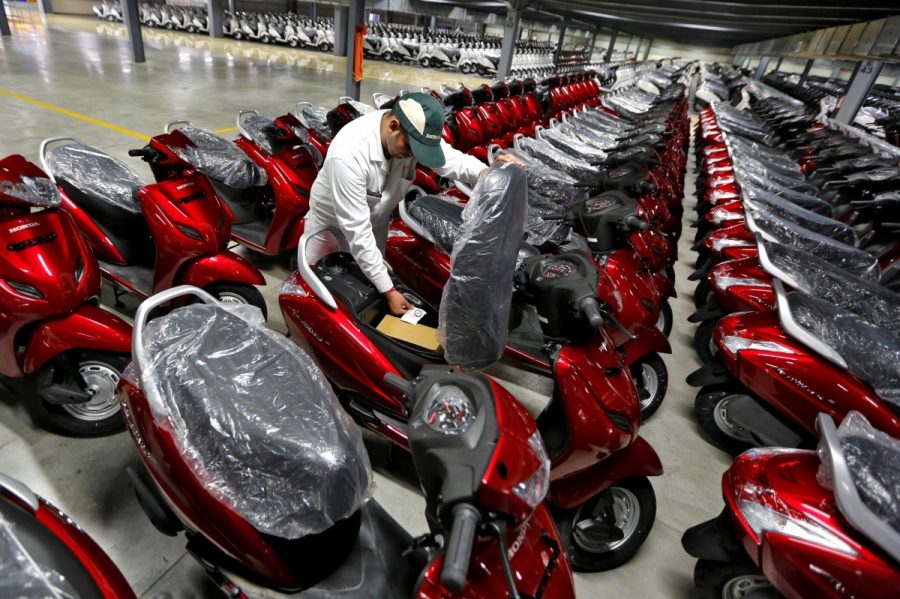The Goods and Services Tax (GST) is expected to bring growth to the Indian automobile industry including the two-wheeler segment. The tax rates on scooters and motorbikes have been revised such that these are now favorable for the masses.
Impact of GST on two-wheelers
Since the implementation of GST, two-wheeler segment has been classified into two categories based on their engine capacity. All bikes and scooters with engine capacity lower than 350CC will be taxed at a 28% GST rate. This is 2% lower than the applicable rate before GST.
Two-wheelers with engine capacity exceeding 350CC will now be taxed at 31% GST. The revised GST rate is 1% higher than the previous rate, which will marginally increase the price of these two-wheelers.
Several manufacturing companies have provided updated price lists on their various models after the implementation of GST on July 1, 2017. According to these releases, the prices of mass segment two-wheelers have decreased marginally. This is expected to boost the growth of this segment.
Premium bikes with engine capacity exceeding 350CC will now become costlier. However, the price increase would not significantly affect this segment. A nominal increase would not greatly impact buyers of premium bikes who are willing to pay INR 3 lakh or more for these motorbikes.
Two-wheeler insurance
Whether you buy a mass model or a premium bike, two-wheeler insurance is mandatory. The insurance industry levied a 15% service tax on the premium before GST implementation. The applicable tax rate has now been increased by 3% to 18%. As a result, the premium of two-wheeler insurance post GST is expected to marginally increase.
However, you do not have to be disappointed with this increase. Here are three ways in which you may be able to reduce insurance premium:
- Utilize the no-claim bonus (NCB)
Insurance companies offer no-claim bonus discounts when you do not file a claim during the policy tenure. These discounts may range between 20% and 50% and are beneficial in significantly reducing the bike insurance premium at the time of renewal.
- Timely renewal
You need to renew the insurance policy at the end of the term. It is vital that you do not delay the renewal. Most insurance companies levy a higher premium if you renew the policy after its expiry. Making timely renewals will help reduce your effective premium.
- Maintain a good record
Your driving history and records are important considerations. When you have a good record, the insurance company considers you a low-risk customer. As a result, you may enjoy a lower premium compared to another individual with a not-so-good driving history and record.
Apart from this, you may also avail of bike insurance online. Some insurance companies offer a lower premium if you buy the policy through this medium.
To get the best of the insurance for your two-wheeler, make a note of these tips.

